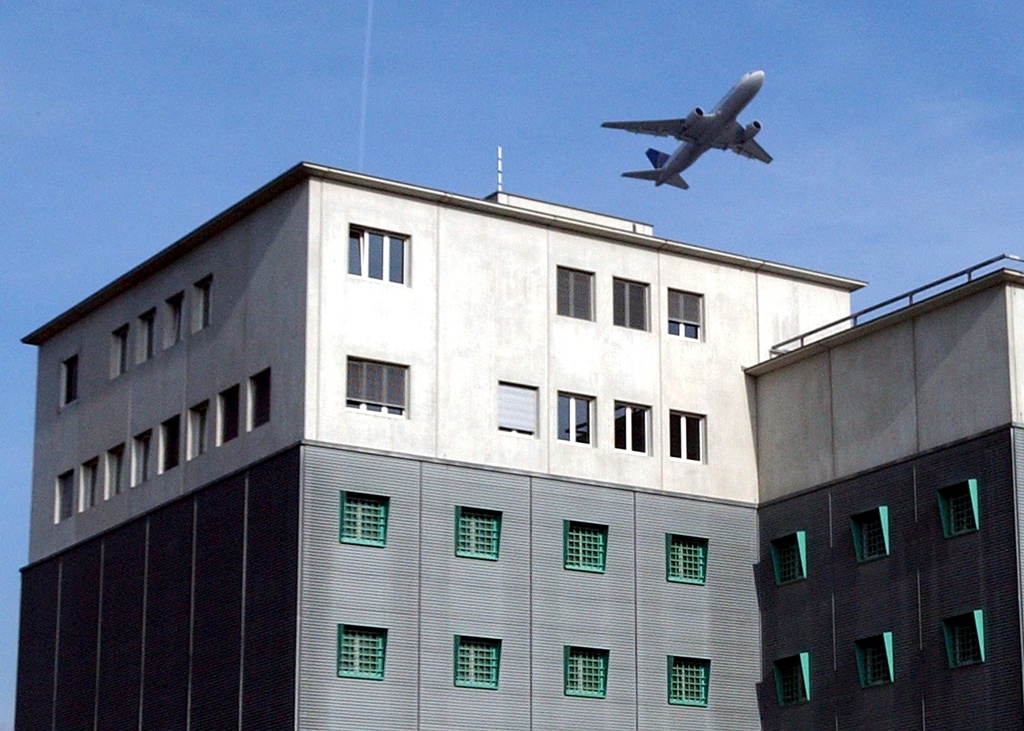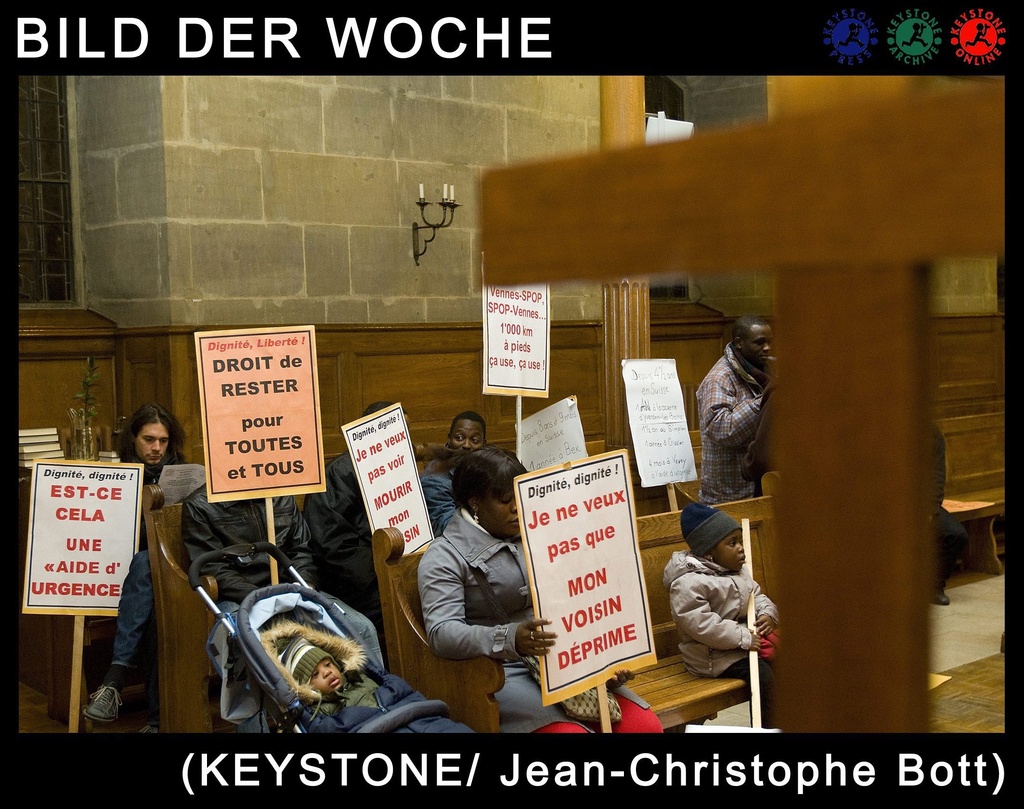Nigerian dies shortly before deportation flight

A Nigerian asylum seeker has died at Zurich Airport shortly before he was due to be sent home on a special flight to Lagos.
After the incident on Wednesday, the Federal Migration Office in Bern ordered a halt to the special flights and said it regretted the man’s death.
The 29-year-old man, who had been on a hunger strike in protest at his extradition, fell ill shortly after he was forcibly restrained. Immediate attempts to resuscitate him failed and he died on the tarmac.
The office of the Zurich public prosecutor is to investigate the death and an autopsy has been ordered.
The Nigerian, a convicted drug dealer who had been in Switzerland since 2005, was due to board the flight on Wednesday evening with 15 others who had refused to leave the country despite expulsion orders.
Swiss police said such passengers were restrained on the special flights for security reasons. In a statement, Zurich police said the man had resisted deportation and could only be restrained by force.
“A short while later he suddenly experienced health problems and shackles were untied,” it said.
When questioned further, the police did not have much to say. What health problems? “He wasn’t injured – more like a state of lethargy. It was hard to talk to him and his state deteriorated rapidly,” said police spokesman Marcel Strebel, adding that he didn’t know for how long the man had refused to eat.
“Animals”
However, two Nigerian witnesses accused the Zurich police of inhumane treatment.
Julius and Emmanuel were also set to leave Zurich on the special night flight, but returning to the administrative detention centre in Frambois, canton Geneva, they said they were traumatised.
“They treated us like animals,” Emmanuel told swissinfo.ch.
They explained how “more than 60 police” had been waiting for the 16 detainees at Zurich airport at around 10pm.
“They shackled our feet, knees, hands, hips, arms and torso and made us wear a helmet like those worn by boxers. It was simply impossible to move.”
Julius, a powerful man of around 40, said he had earlier spoken to the dead man, whom he didn’t know, in the hall where all the deportees are held before being isolated in cabins.
“He seemed to be fit,” Julius said.
Screaming in pain
Julius had been tied to a chair and carried into the plane by three officers. But he fell and was injured. Emmanuel, who said he was frightened and hadn’t talked to anyone in the departure hall, shuffled into the plane with the chains around his legs.
Once in the plane, the men were removed from the chairs and tied to the aeroplane seats.
Julius and Emmanuel don’t understand why people who agree to be deported should be tied up.
“The police had bound the shackles so tight that it hurt. But the police officers from canton Vaud who accompanied us had secretly untied them,” they said, adding that other Nigerians were screaming in pain.
Zurich police reject these criticisms. “The officers are professionals,” Strebel said. “They only tie to seats those people who resist or are too weak. The others walk to the plane.”
He explained that the shackles and helmets were meant to protect individuals “from hurting themselves when they resist”.
“We’re used to criticism,” he said. “It’s an unpleasant job that we have to do and sometimes there’s a wide gap between security and humanity.”
Last resort
While waiting for the initial results of the investigation, the Federal Migration Office said it wasn’t calling the special flights into question.
“It’s the only option, used as a last resort, for those people who refuse to go back voluntarily,” said Urs von Arb, head of the deportation section.
This death occurred while the migration office was in the process of drawing up, with police experts from Bern, Geneva and Zurich, a manual on the application of the law when restraining people.
“It’s being finalised with the cantons,” von Arb said. “If there are developments as a result of what happened at Zurich, then we will modify it.”
The manual expressly rules out for example the use of weapons with forced deportations and says that the team that locates a deportee must be different from the one that accompanies him in the aeroplane.
Human rights organisation Amnesty International said it was “dismayed” by the death of the Nigerian and called for the presence of independent observers.
“Switzerland is obliged to deploy them,” replied von Arb. “According to the European Union’s Return Directive we have until spring 2011 to provide such a monitoring service.”
Little consolation for the nameless Nigerian who died on the runway on Wednesday night.
Ariane Gigon, swissinfo.ch (Translated from French by Thomas Stephens)
In 2009, 43 special flights took off from Switzerland, deporting some 360 people, mostly towards the Balkans or Africa. In 2008 there were 45 flights.
80-90 per cent of these flights take off from Zurich. The planes are specially equipped to take people who refuse to return to their countries voluntarily.
The most recent such flight to Nigeria was in November. That also experienced problems between the police and the deportees.
In 2009, 140 Nigerians accepted repatriation aid and returned voluntarily. 70 were sent home by force and 215 were accompanied on an aeroplane.
The death on Wednesday is the third such death in Switzerland. In 1999 a 27-year-old Palestinian suffocated in a lift at Zurich airport. He had been accompanied by three police officers. In 2001 a Nigerian suffocated in his cell after a show of police force.

In compliance with the JTI standards
More: SWI swissinfo.ch certified by the Journalism Trust Initiative












You can find an overview of ongoing debates with our journalists here . Please join us!
If you want to start a conversation about a topic raised in this article or want to report factual errors, email us at english@swissinfo.ch.